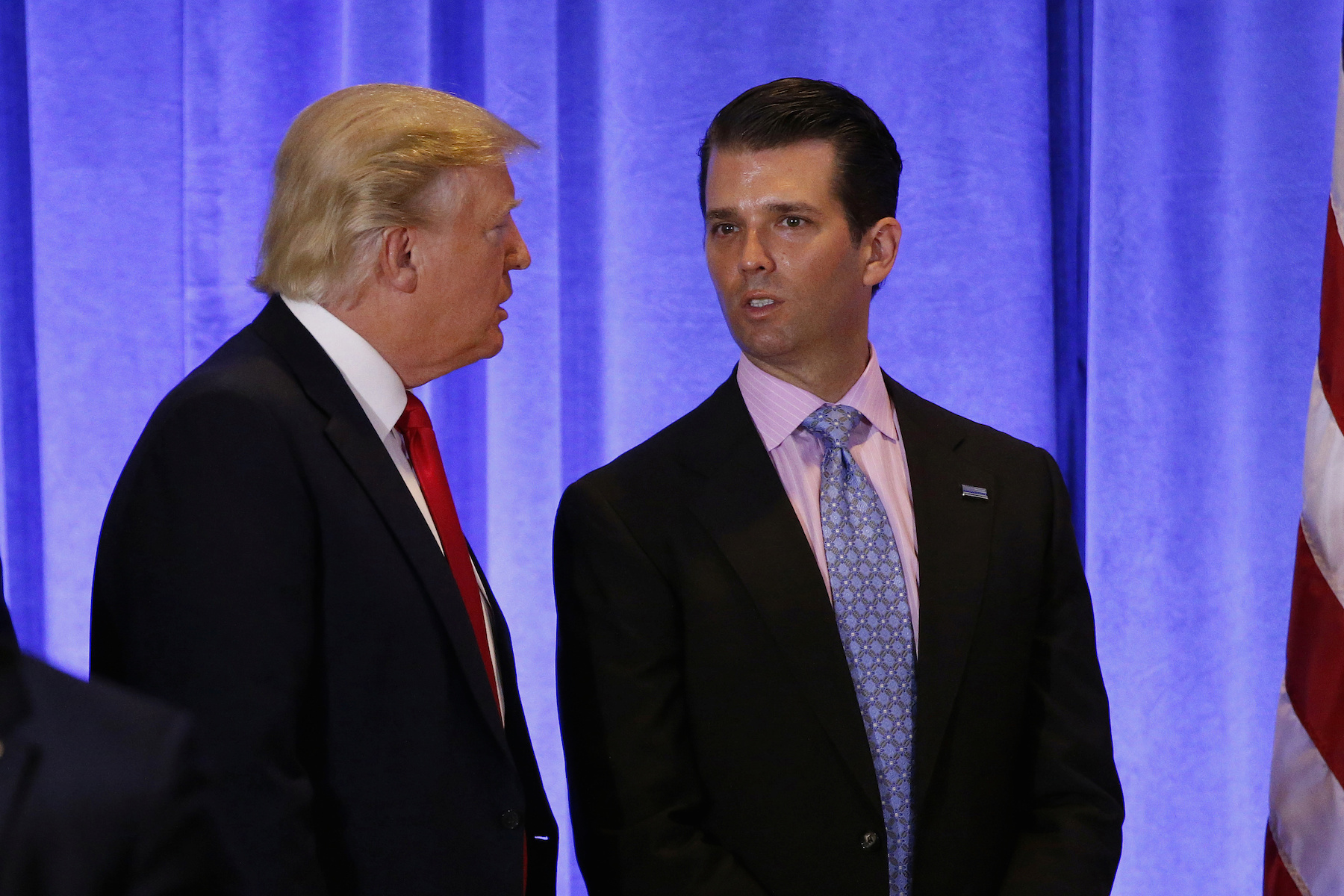In light of Donald Trump Jr.’s recent disclosures about his contact with a Russian lawyer, US investigators are taking a renewed look at conversations Russian government officials had about his father’s associates before the 2016 presidential campaign, according to The Wall Street Journal.
The US intelligence community overheard Russian officials discussing Donald Trump’s associates as early as 2015, The Journal reported Wednesday. The conversations took place months before Trump launched his presidential run.
The intelligence community routinely monitors foreign government officials who are suspected of espionage. The monitoring was not related to Trump or his associates, and it’s unclear which associates the Russians were discussing, current and former US officials told The Journal.
The information the US intelligence community gathered was “vague and inconclusive,” the report said, and in some cases involved meetings that took place outside the US between Russian officials and Trump associates.
Officials told The Journal that the communications themselves weren't particularly noteworthy at the time, considering that Trump had sold properties to Russian nationals and held the 2013 Miss Universe pageant in Moscow.
But intelligence officials are now reviewing the findings, especially following reports that Trump Jr. met with a Russian lawyer with ties to the Kremlin last June in an effort to obtain damaging information about Hillary Clinton. According to an email chain Trump Jr. posted online Tuesday, he was told ahead of time that the meeting was "part of Russia and its government's support for Mr. Trump."
The Trump campaign is under multiple congressional investigations and an FBI counterintelligence inquiry over its connections to Russia and whether it played any role in Russia's interference in the 2016 election.
Though Trump has repeatedly blasted the investigations and called them a "witch hunt," the revelations about Trump Jr. have reignited the debate over whether the Trump campaign colluded with Russia during the election.
Read more at The Wall Street Journal >

